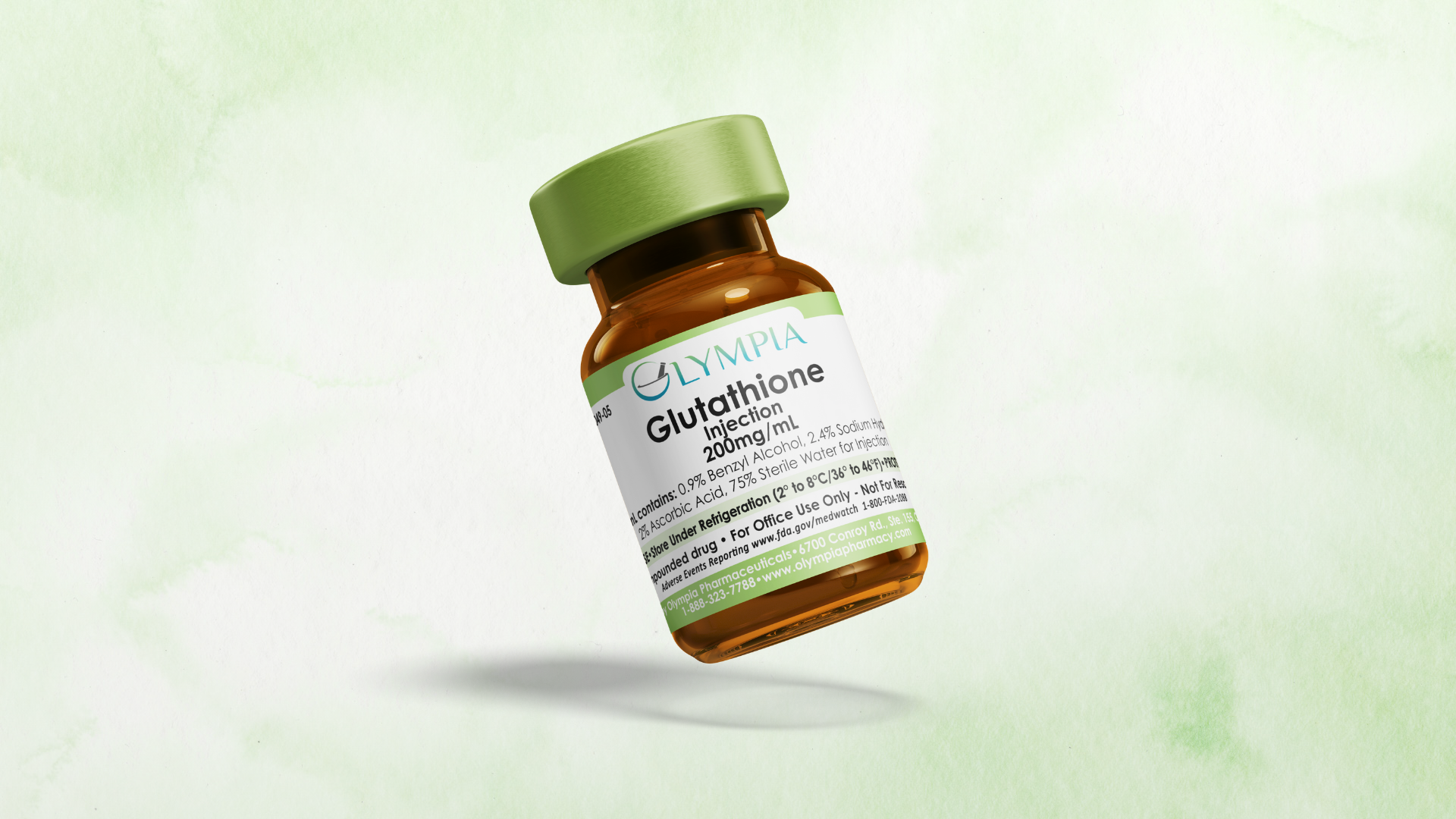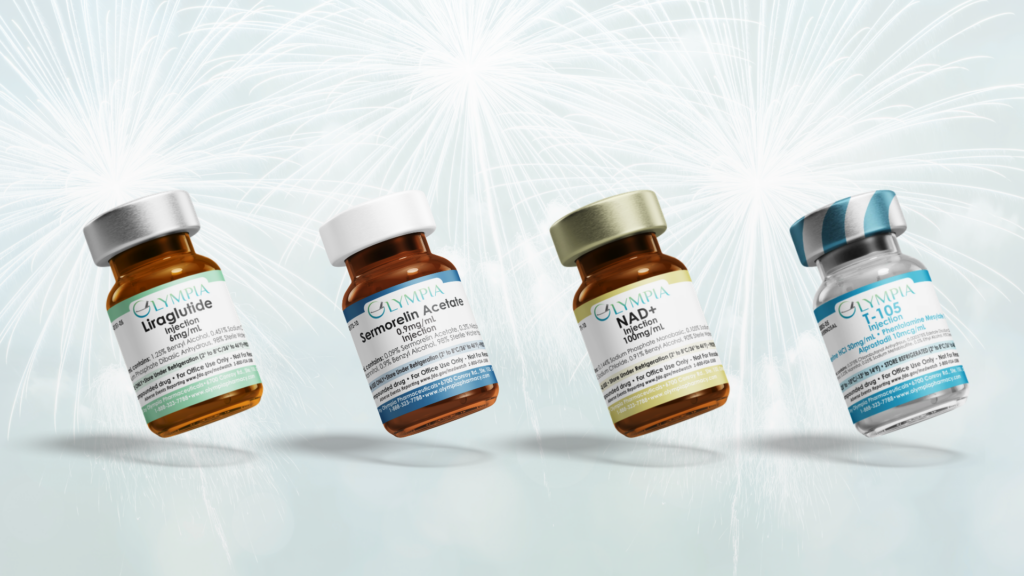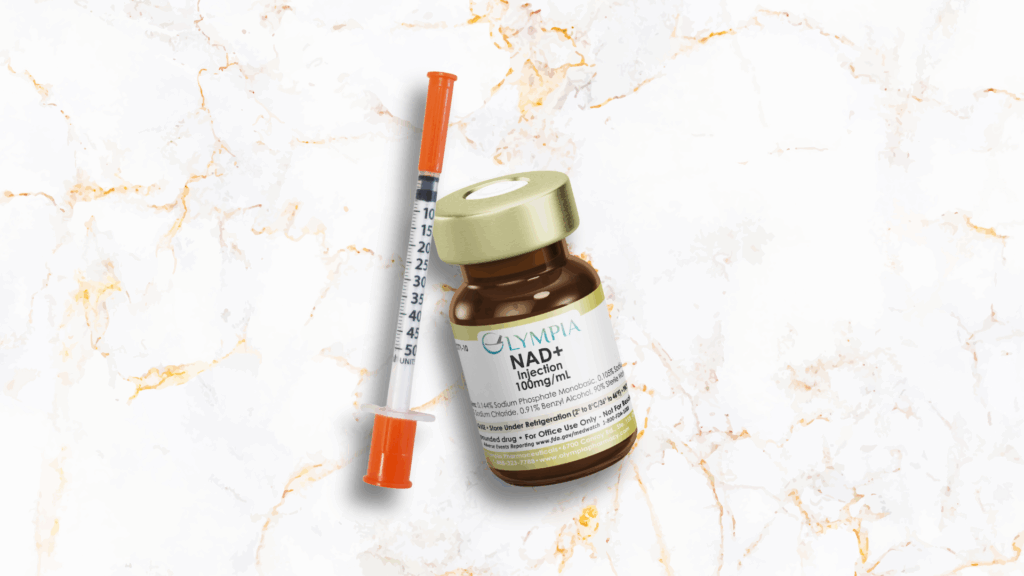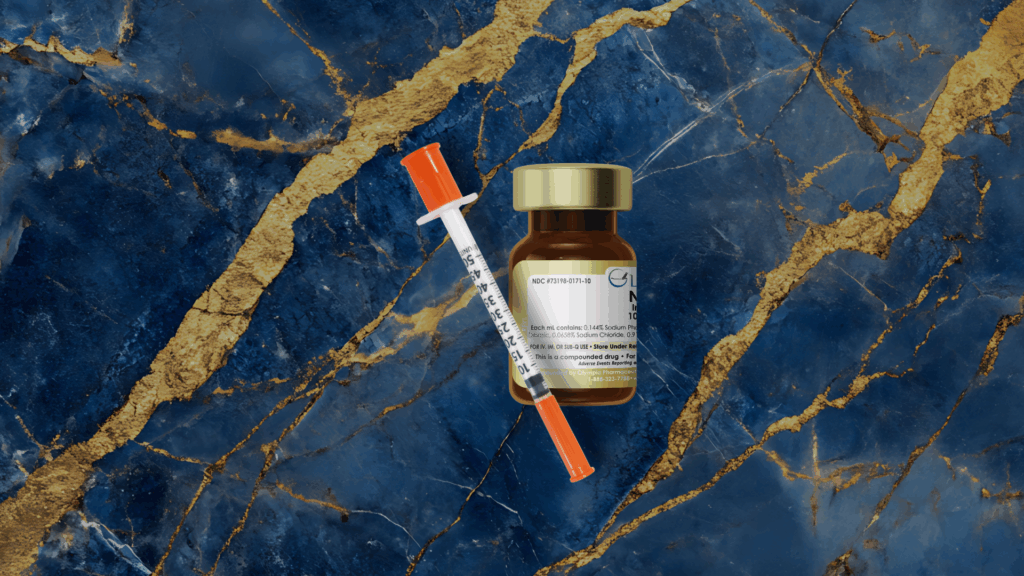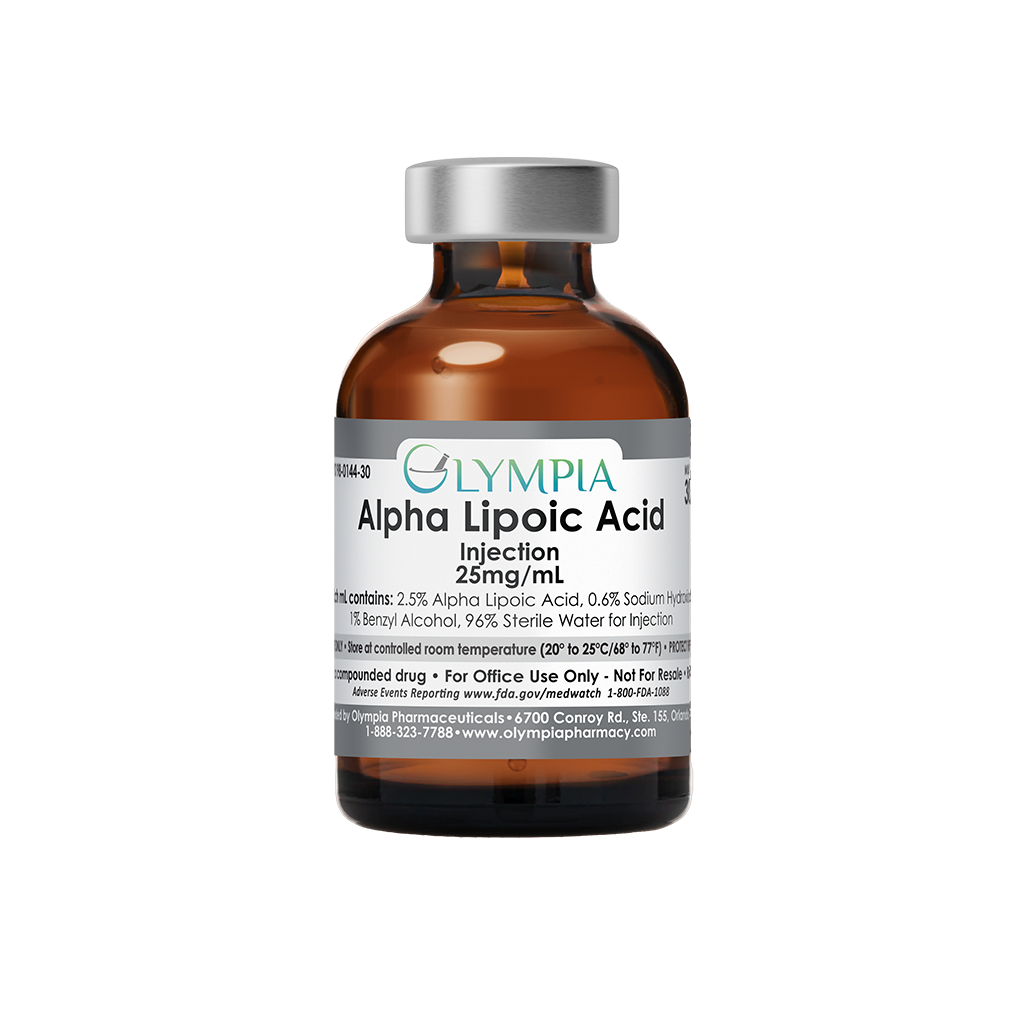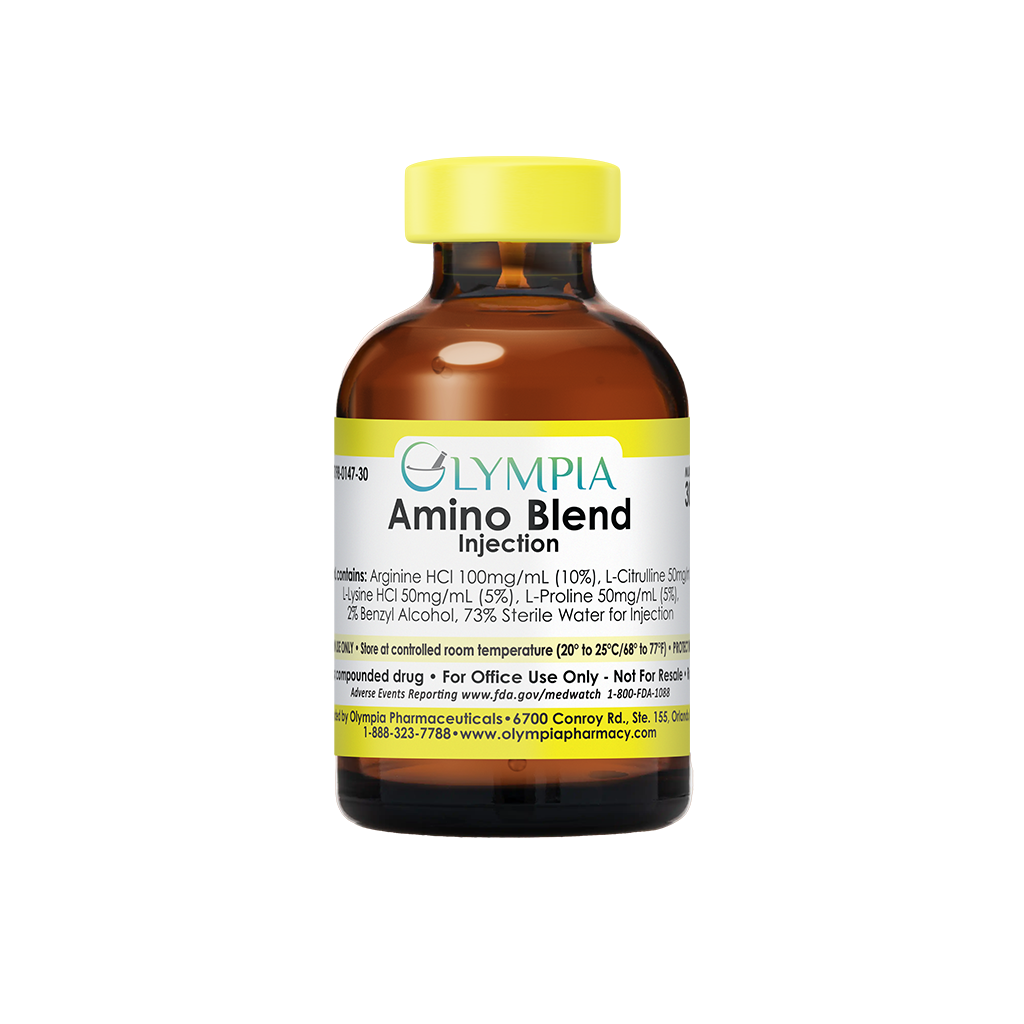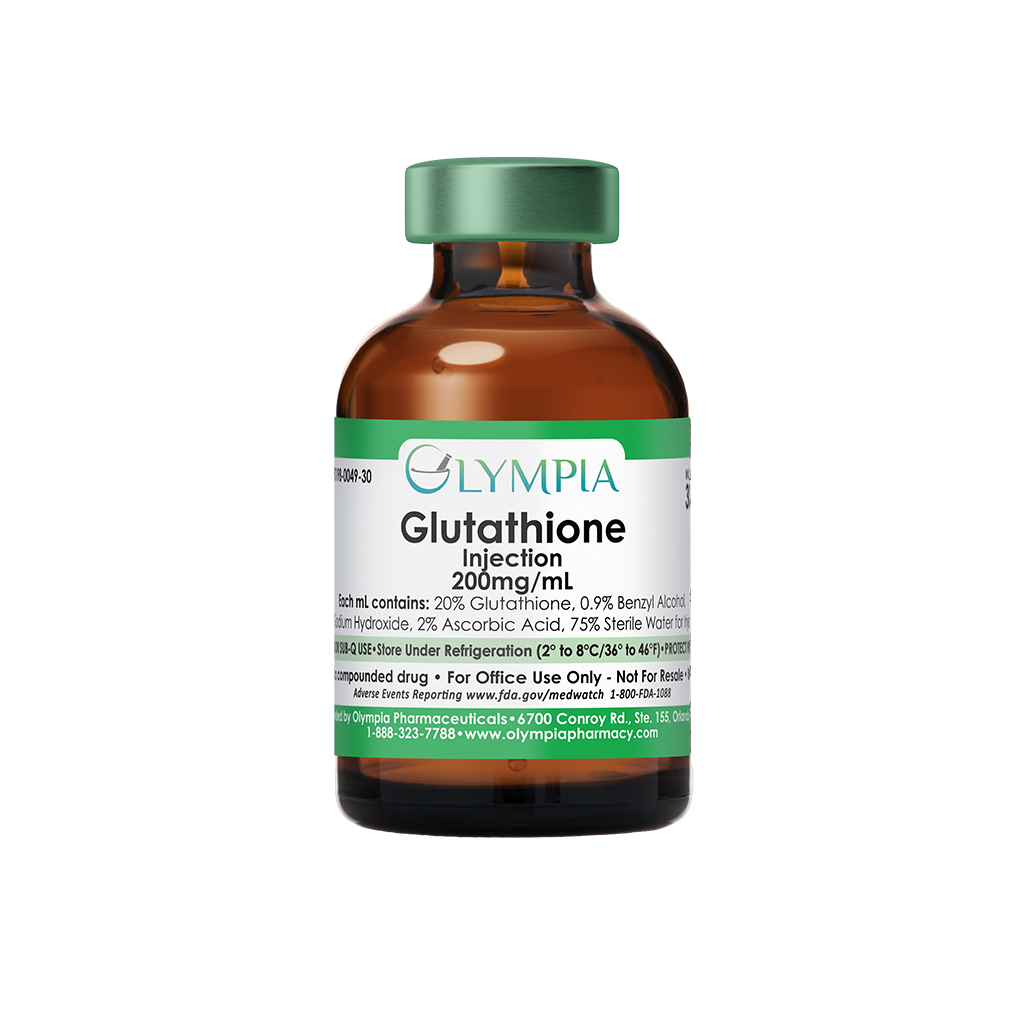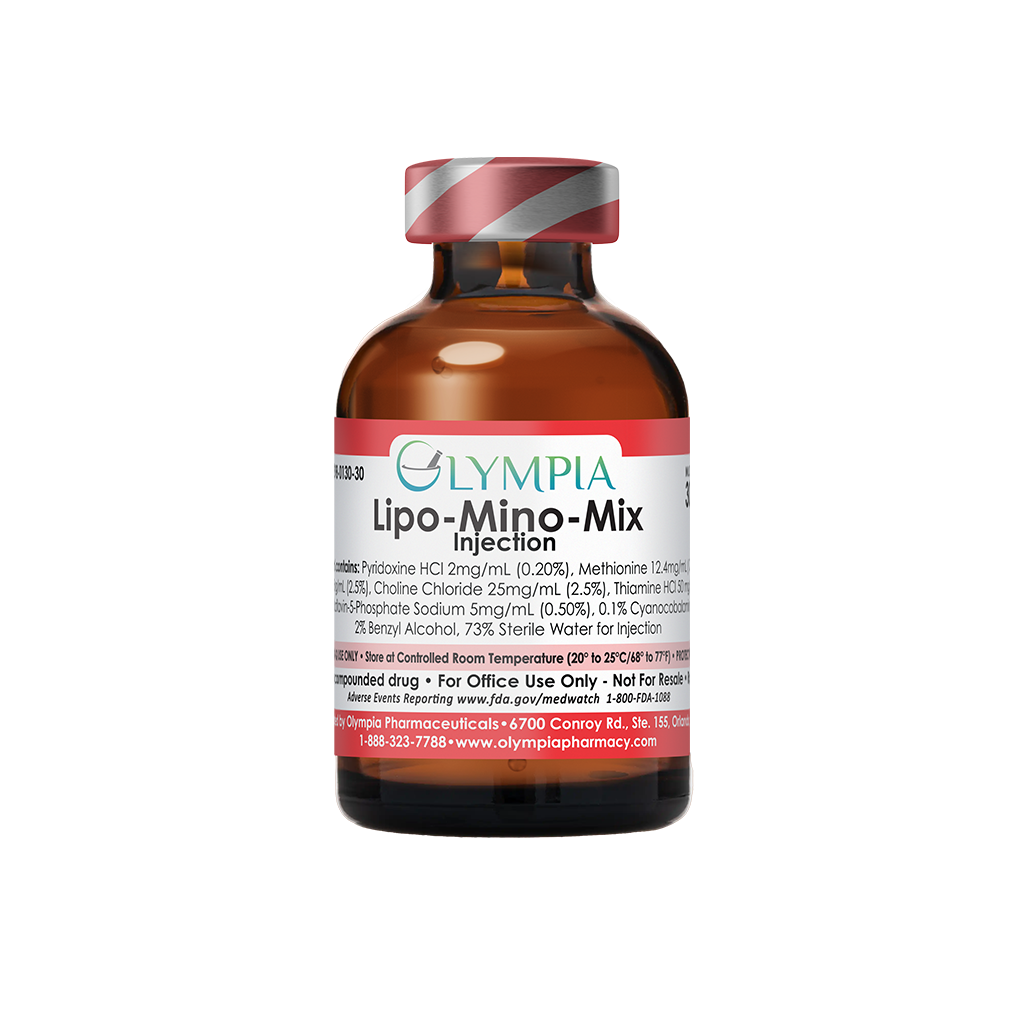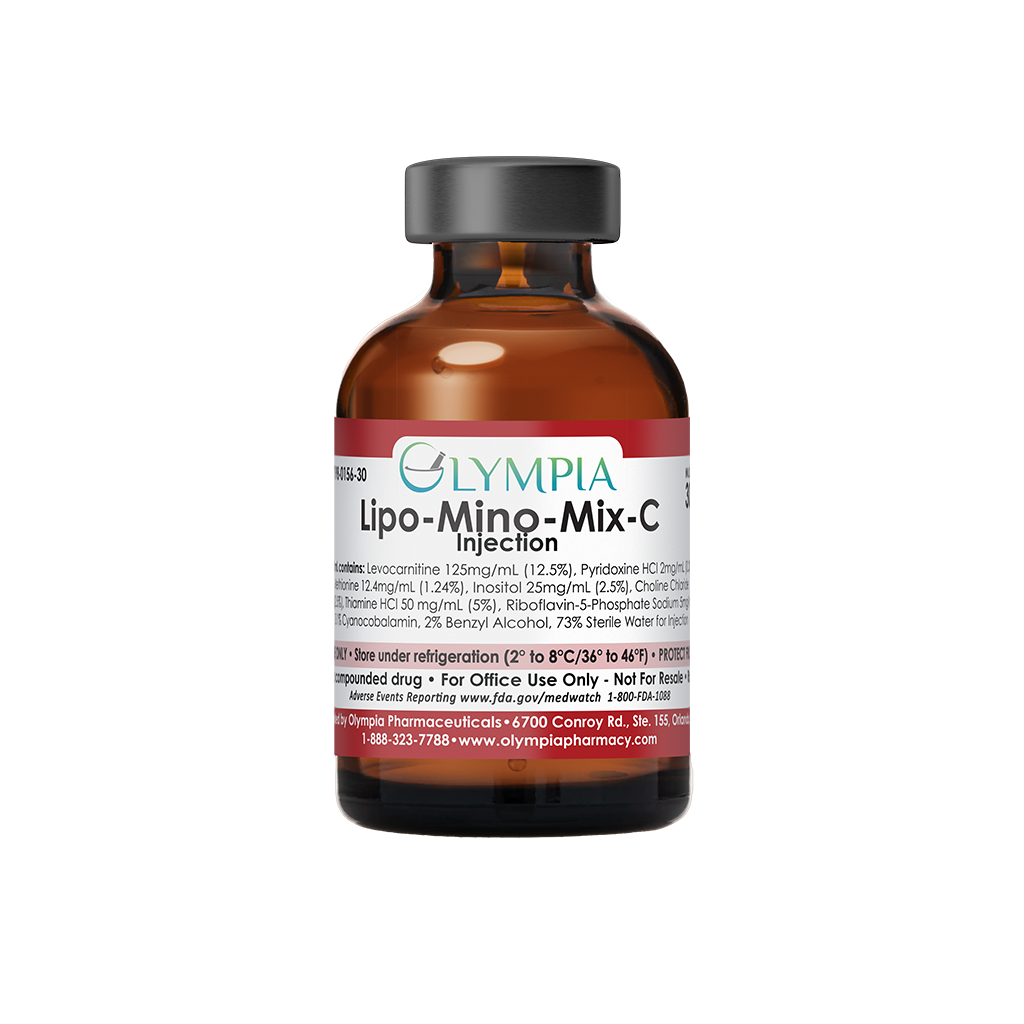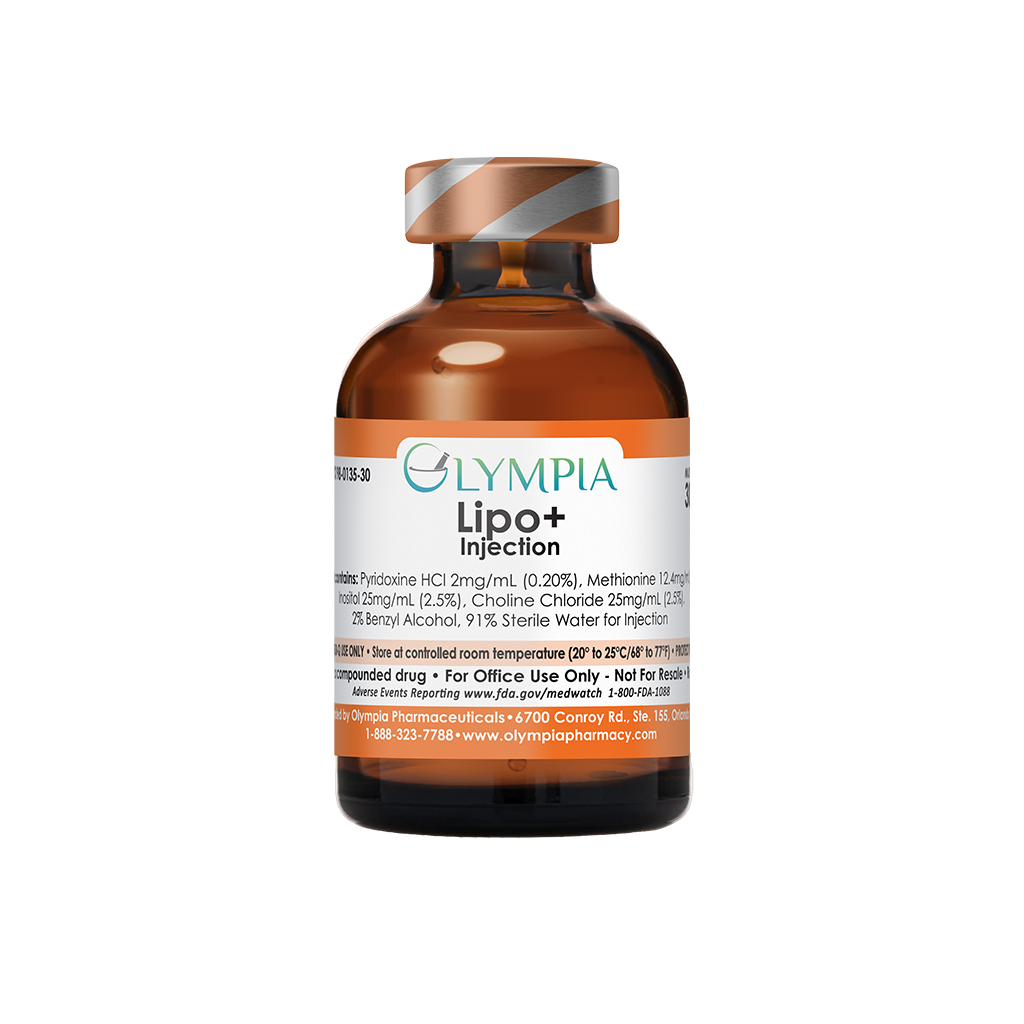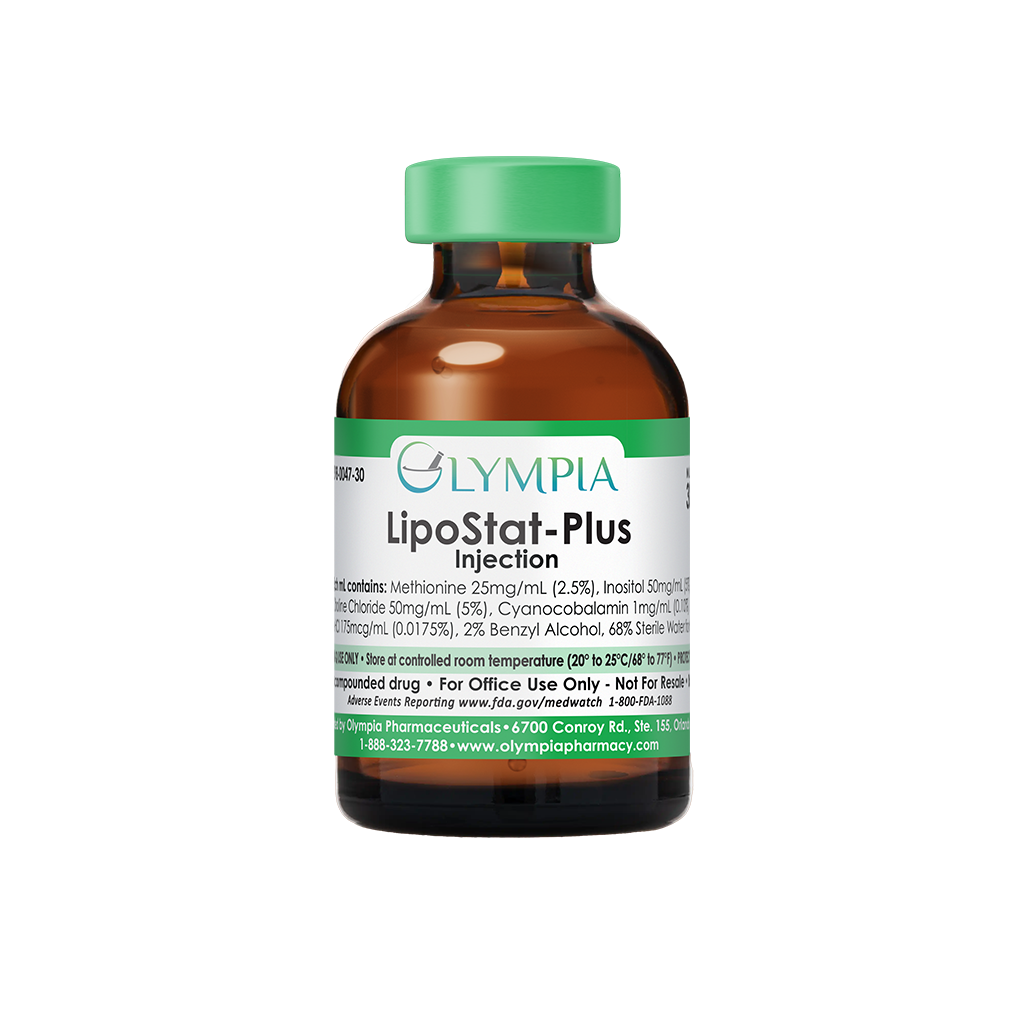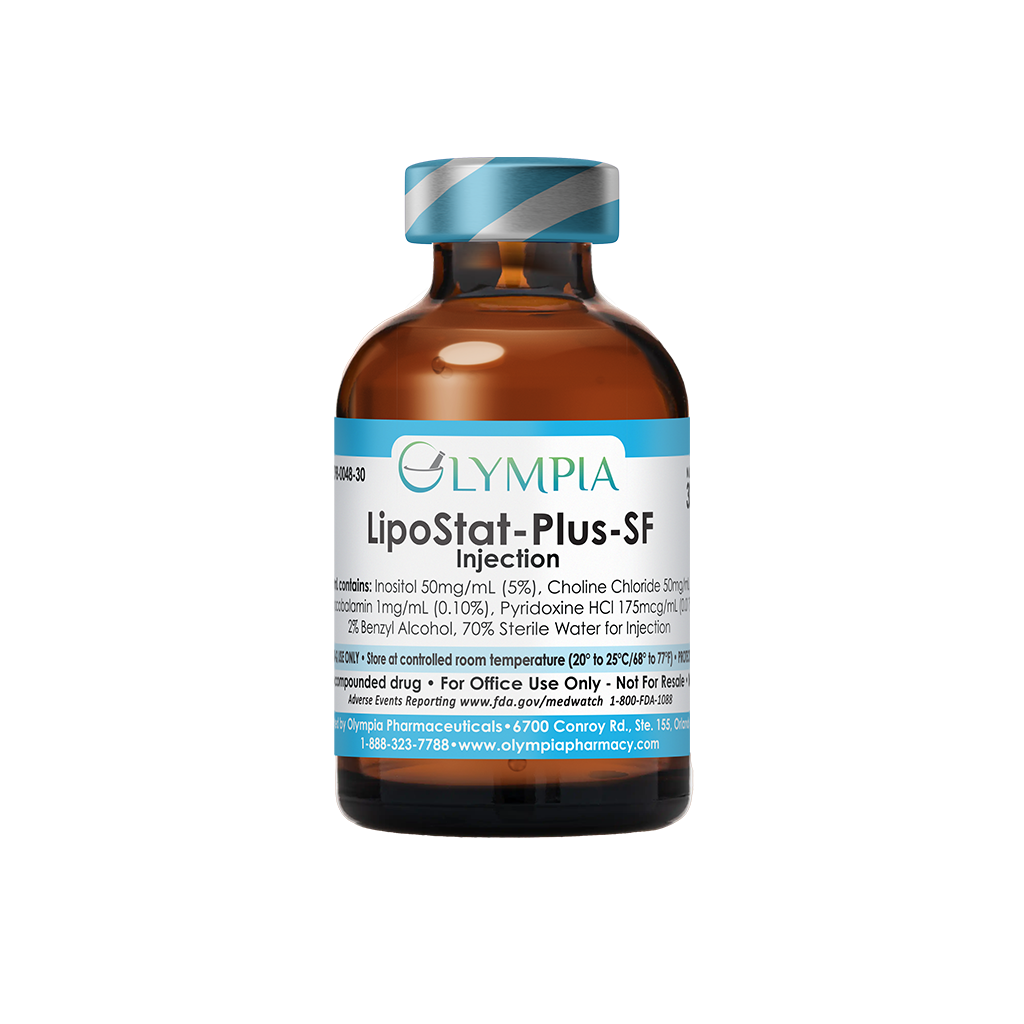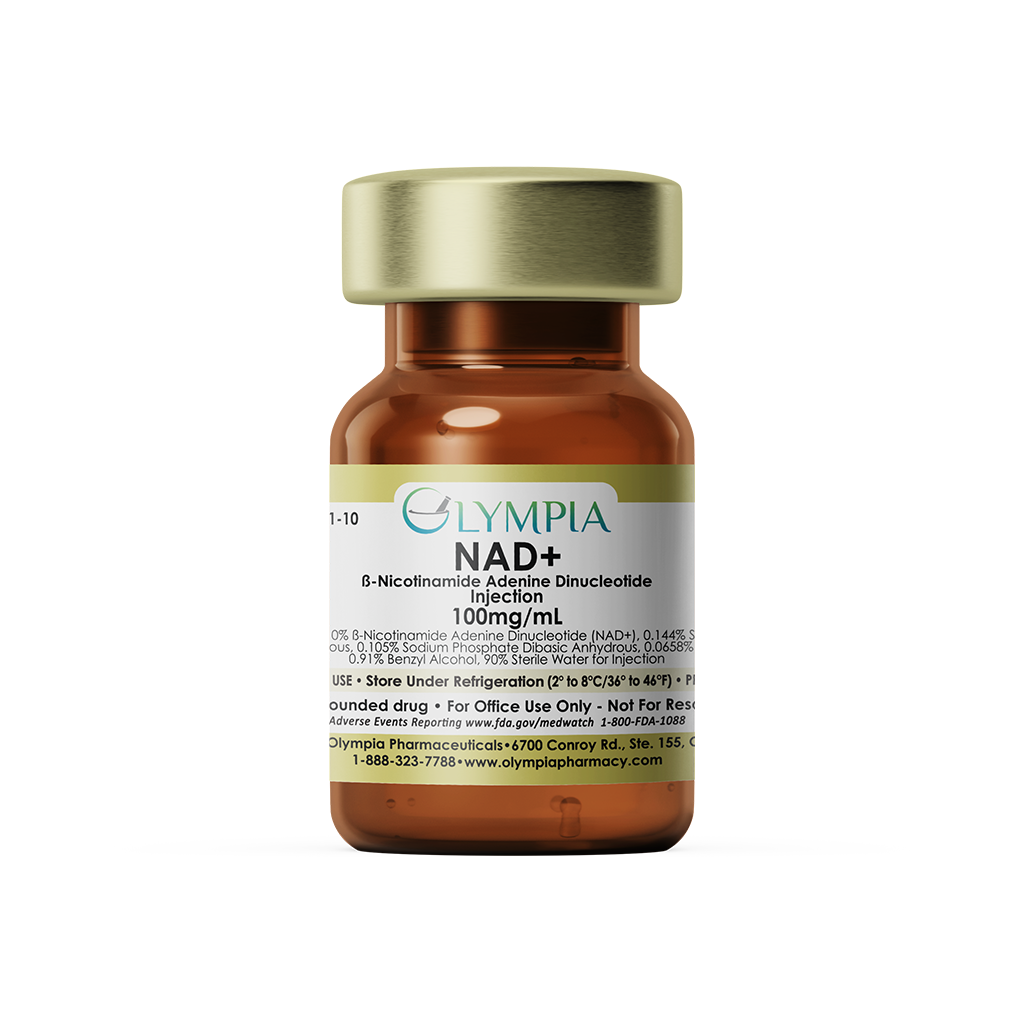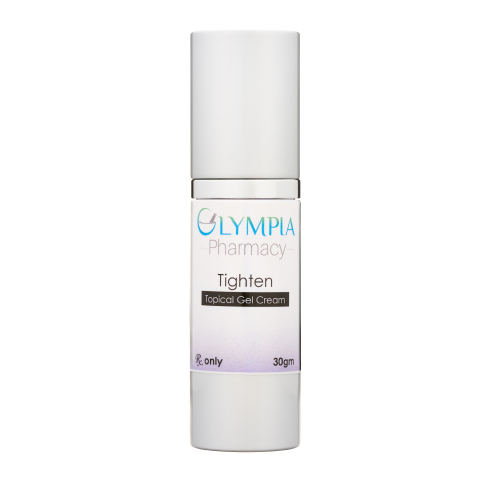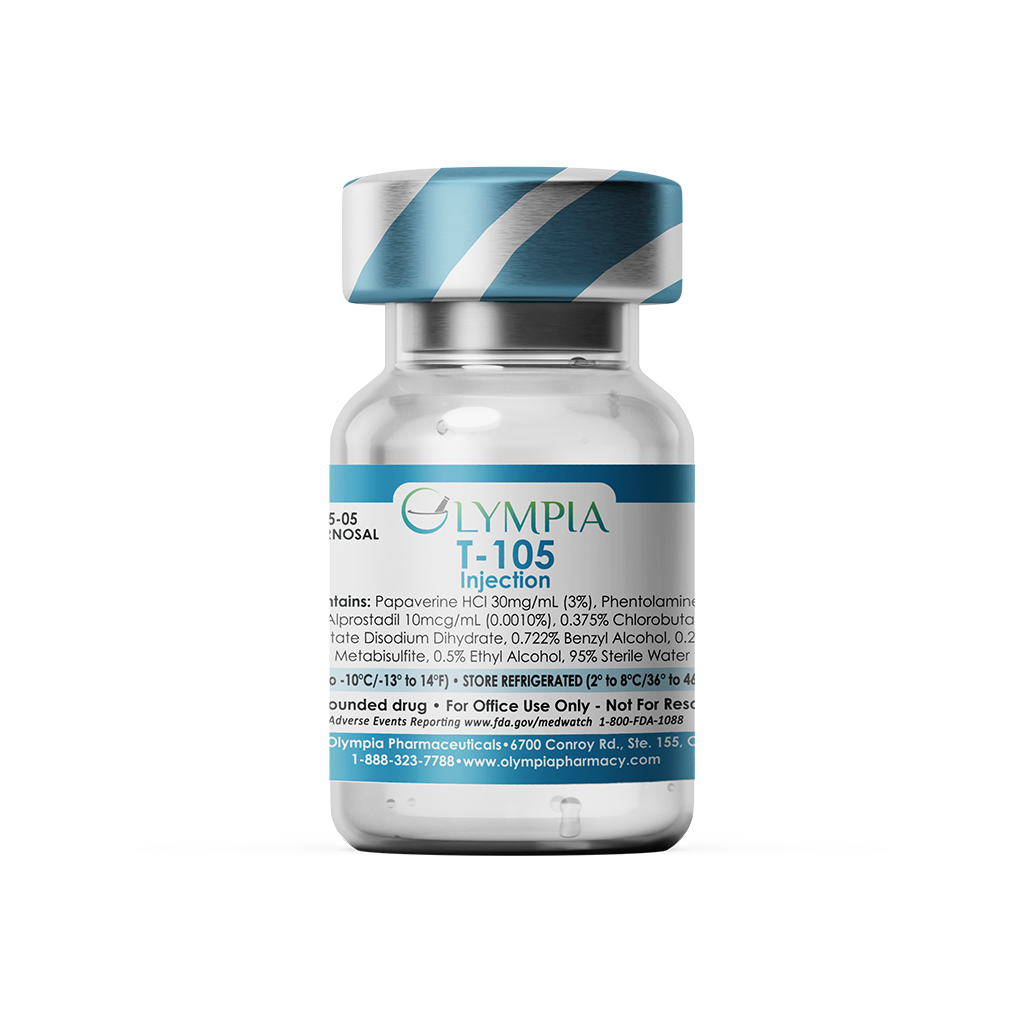Oxidative stress happens quietly, but its effects ripple through your entire system. Whether you’re battling fatigue, inflammation or simply trying to age well, oxidative stress could be working against you in the background.
Let’s break down what it is, why it matters and how you can reduce it.
What Is Oxidative Stress?
Oxidative stress occurs when the production of reactive oxygen species (ROS) or free radicals exceeds the body’s ability to neutralize them with antioxidants. These free radicals are unstable molecules that contain unpaired electrons. To stabilize themselves, they react with nearby molecules, damaging DNA, proteins, cell membranes and lipids in the process.
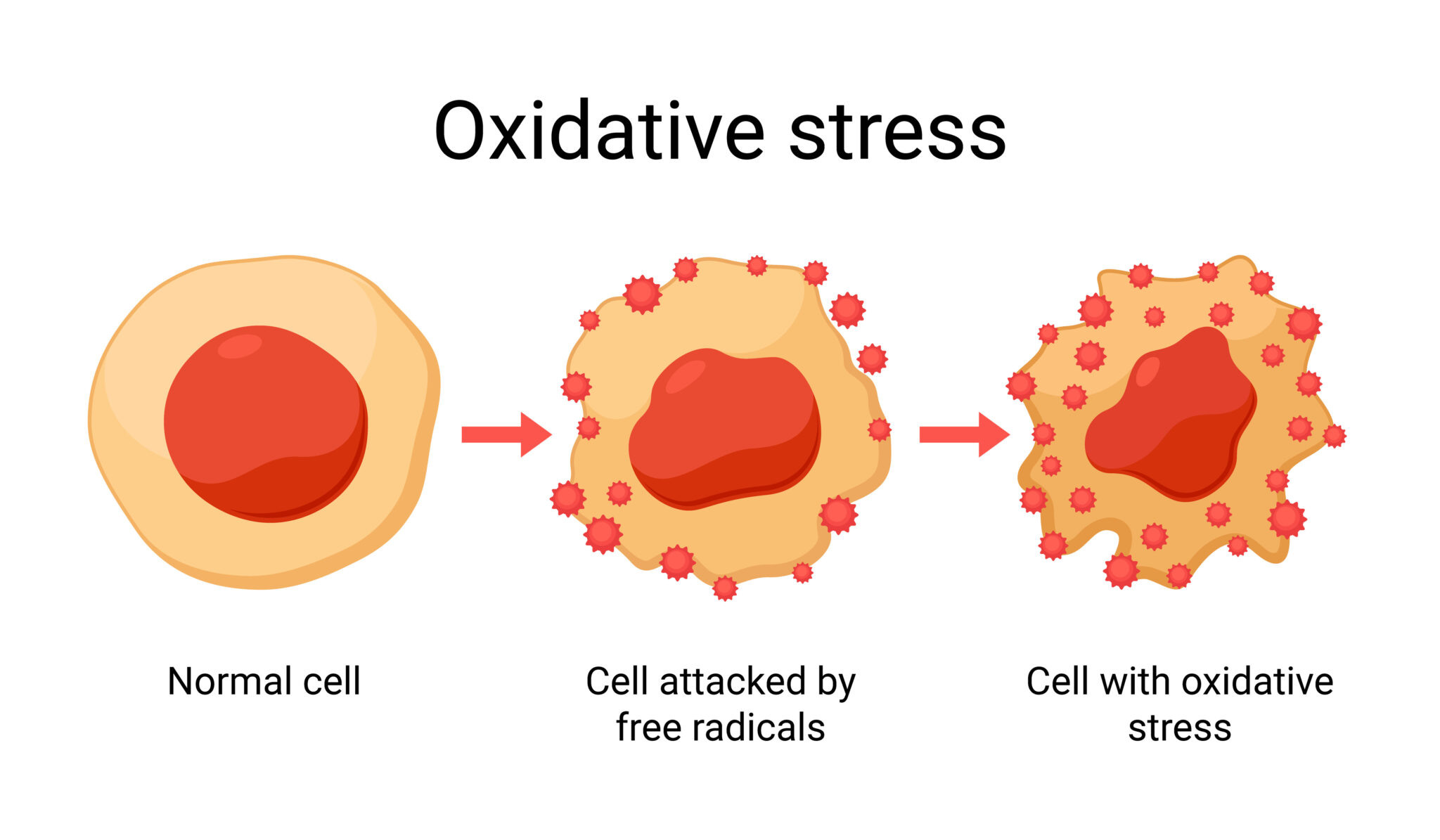
What Causes Oxidative Stress?
While free radicals are a natural byproduct of cellular metabolism and immune responses, excessive levels can be harmful. Contributing factors include:
- A diet high in sugar and processed fats[1]
- Exposure to environmental toxins like air pollution, pesticides and heavy metals[2]
- Cigarette smoke[3] and alcohol use[4]
- Infections and chronic inflammation[5]
- Intense or prolonged physical exertion[6]
- Psychological stress[7]
Biochemically, oxidative stress is marked by an imbalance between oxidants and antioxidants, disrupting cellular signaling, promoting inflammation and weakening mitochondrial function.[8] Over time, this imbalance can lead to cumulative molecular damage, a foundational factor in aging and disease progression.
Why Oxidative Stress Matters for Long-Term Health
The effects of oxidative stress are far-reaching. While the body has systems in place to repair damaged cells, persistent oxidative stress overwhelms those mechanisms, setting off a chain reaction of cellular dysfunction.
Chronic oxidative stress is linked to a wide range of diseases, including:
- Cardiovascular disease: ROS damage endothelial cells lining blood vessels, promoting atherosclerosis and hypertension.[9]
- Neurodegenerative disorders: Oxidative damage to neurons is a key driver in conditions like Alzheimer’s, Parkinson’s and ALS.[10]
- Diabetes and insulin resistance: Oxidative stress impairs insulin signaling and worsens glycemic control.[10]
- Cancer: DNA mutations caused by free radical damage may initiate or accelerate tumor development.[11]
- Autoimmune conditions: Oxidative stress can trigger inflammatory pathways, contributing to immune dysregulation.[9]
Even outside of these conditions, oxidative stress contributes to fatigue, slower recovery, immune suppression and premature aging at the cellular level. Mitochondria, your body’s energy-producing organelles, are particularly vulnerable, which can result in reduced energy, brain fog and decreased physical performance.
How the Body Defends Itself
Your body is built to handle a certain amount of oxidative stress. It has a defense system made up of antioxidants, compounds that neutralize free radicals by giving them an electron, which stops them from damaging healthy cells.
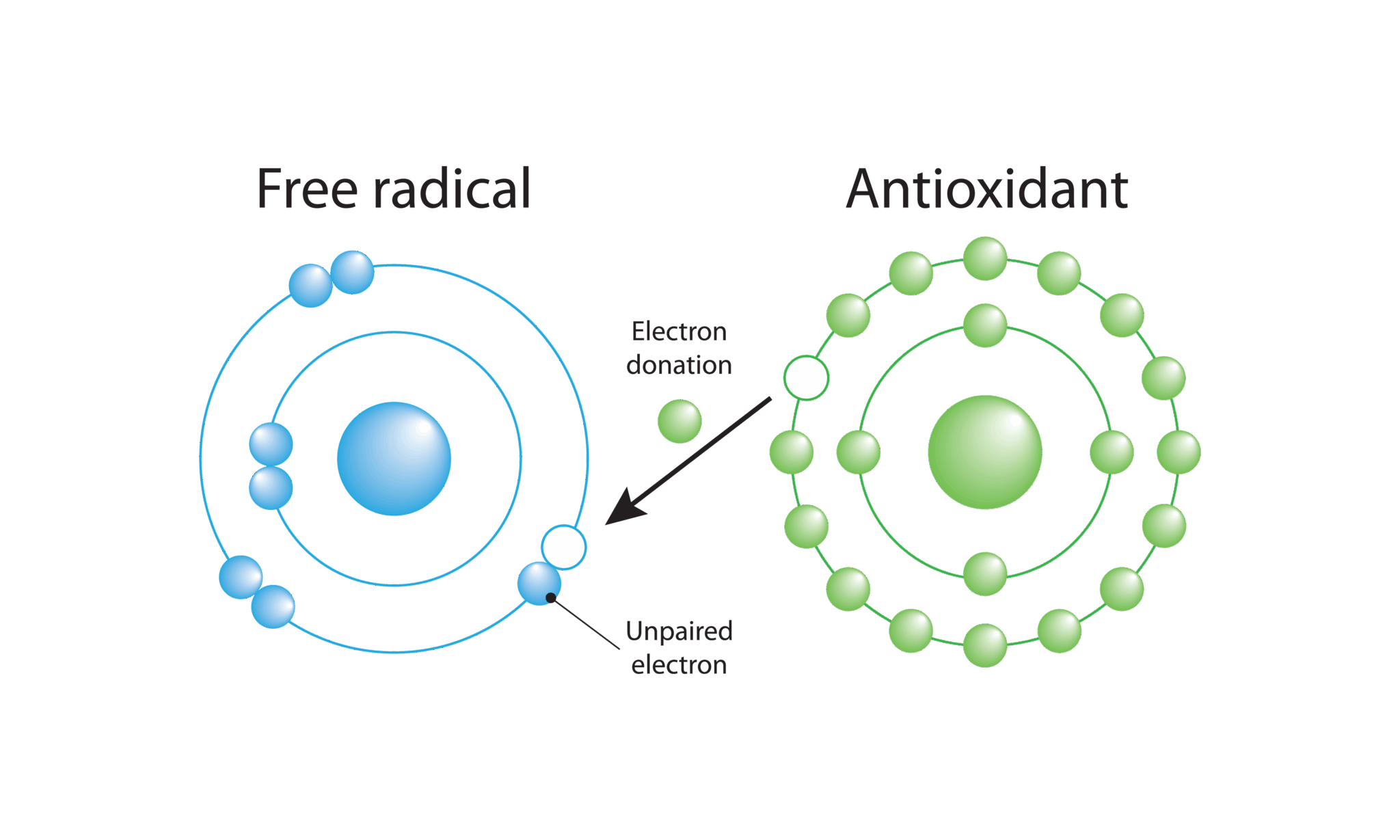
These antioxidants come from two main sources:
1. Your Body’s Natural Antioxidants
Your cells produce their own antioxidants to help protect against daily stress. These natural defenses work constantly to keep free radicals in check and maintain balance inside your cells.
2. Antioxidants from Food
You also get antioxidants from what you eat. Fruits, vegetables, nuts and whole grains are rich in nutrients that support your body’s defenses, including:
- Vitamin C (found in citrus and bell peppers)
- Vitamin E (found in nuts and seeds)
- Selenium and zinc (found in seafood, eggs and legumes)
- Plant compounds like flavonoids and polyphenols (found in colorful produce, teas and spices)
Together, these nutrients help your body recover from stress, fight inflammation and stay resilient.[12]
The problem comes when your body’s defense system can’t keep up, either because of poor nutrition, aging, chronic stress or exposure to toxins. That’s when oxidative stress builds up and starts causing damage at a deeper level.
In these cases, lifestyle changes or targeted therapies may be needed to restore the balance.
How to Reduce Oxidative Stress Naturally
While you can’t avoid oxidative stress completely, you can help your body manage it by building habits that support your natural defenses.
Here are some ways to lower your oxidative load:
1. Eat Antioxidant-Rich Foods
A diet full of colorful fruits and vegetables gives your body the nutrients it needs to fight free radicals. Focus on:
- Leafy greens
- Berries
- Citrus fruits
- Cruciferous vegetables like broccoli and cauliflower
- Herbs and spices like turmeric and garlic
These foods are packed with vitamins, minerals and plant compounds that support cellular health.
2. Get Regular, Moderate Exercise
Movement helps boost circulation, reduce inflammation and support healthy metabolism. But more isn’t always better — overtraining can increase oxidative stress. Aim for consistent, moderate activity like walking, cycling or strength training a few times a week.
3. Prioritize Sleep
Your body does most of its repair work while you sleep. Poor or inconsistent sleep can increase inflammation and weaken antioxidant defenses.[13] Try to get 7–9 hours of quality sleep each night.
4. Manage Stress
Chronic emotional stress increases the production of free radicals and impairs antioxidant defenses. Stress-management tools like breathwork, stretching, meditation or time in nature can help lower your stress response and support balance.
5. Limit Exposure to Toxins
Avoiding cigarette smoke, excessive alcohol, heavily processed foods and environmental toxins can take pressure off your detox systems and reduce your body’s need to play defense.
Glutathione: A Targeted Defense
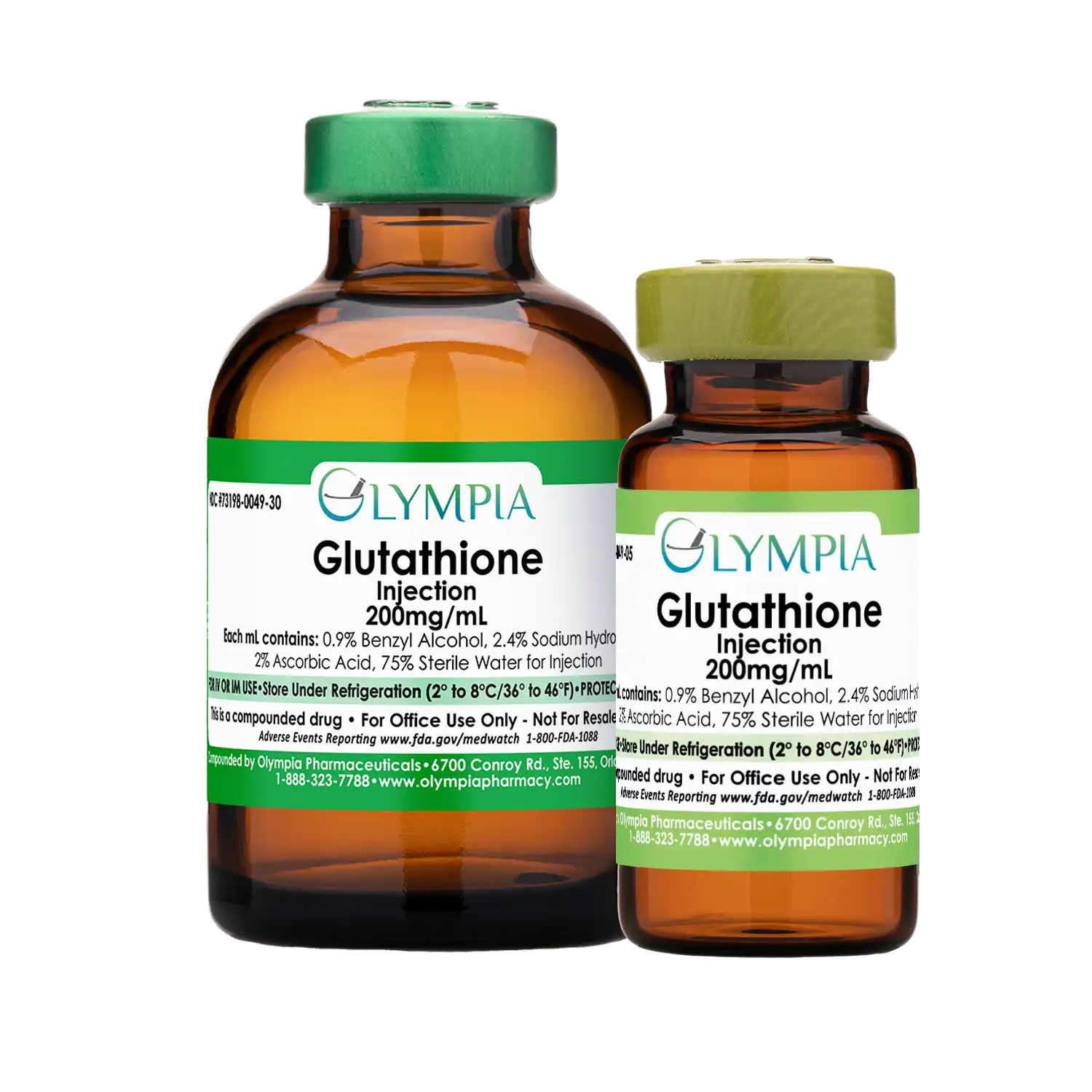
Sometimes, even the healthiest habits aren’t enough, especially if you’re dealing with ongoing stress, fatigue, chronic illness or a high-demand lifestyle. In those cases, your body’s natural antioxidant supply may not be able to keep up.
That’s where supplemental glutathione can help.
Glutathione is one of the most powerful antioxidants your body makes. It plays a key role in:
While your body does produce glutathione on its own, levels naturally decline with age, stress, poor diet or exposure to toxins. This can leave your cells more vulnerable to oxidative stress and slow down your ability to recover.
Why IV or IM Glutathione?
Absorption of oral glutathione can be inconsistent due to the range of factors that impact the digestive system, including stomach acid levels, enzyme activity, gut inflammation and individual differences in metabolism. That’s why IV (intravenous) or IM (intramuscular) glutathione is often preferred, especially for people who need faster or more complete support.
Olympia Pharmaceuticals offers high-quality glutathione for IV and IM use, available through licensed healthcare providers. It’s a simple way to help restore balance and protect your long-term health.
Final Takeaway
Oxidative stress is unavoidable, but that doesn’t mean you have to let it take control. By supporting your body with the right habits and solutions like IV or IM glutathione, you may restore balance, protect your health and recover with more resilience.
Talk to your provider about whether glutathione is right for you or reach out to Olympia Pharmaceuticals for more information.
[button url=”https://www.olympiapharmacy.com/product/l-glutathione/”]Learn More About Glutathione[/button]
Resources
1. Martínez Leo EE, Meza Peñafiel A, Hernández Escalante VM, Cabrera Araujo ZM. Ultra-processed diet, systemic oxidative stress, and breach of immunologic tolerance. Nutrition. 2021;91-92:111419. doi:10.1016/j.nut.2021.111419.
2. Samet JM, Wages PA. Oxidative stress from environmental exposures. Curr Opin Toxicol. 2018;7:60-66. doi:10.1016/j.cotox.2017.10.008.
3. Aridgides DS, Mellinger DL, Armstrong DA, et al. Functional and metabolic impairment in cigarette smoke-exposed macrophages is tied to oxidative stress. Sci Rep. 2019;9:9624. doi:10.1038/s41598-019-46045-7.
4. Tsermpini EE, Plemenitaš Ilješ A, Dolžan V. Alcohol-Induced Oxidative Stress and the Role of Antioxidants in Alcohol Use Disorder: A Systematic Review. Antioxidants. 2022; 11(7):1374. https://doi.org/10.3390/antiox11071374
5. D’Aiuto F, Nibali L, Parkar M, Patel K, Suvan J, Donos N. Oxidative Stress, Systemic Inflammation, and Severe Periodontitis. Journal of Dental Research. 2010;89(11):1241-1246. doi:10.1177/0022034510375830
6. Cho S-Y, Chung Y-S, Yoon H-K, Roh H-T. Impact of Exercise Intensity on Systemic Oxidative Stress, Inflammatory Responses, and Sirtuin Levels in Healthy Male Volunteers. International Journal of Environmental Research and Public Health. 2022; 19(18):11292. https://doi.org/10.3390/ijerph191811292
7. Aschbacher K, O’Donovan A, Wolkowitz OM, et al. Good stress, bad stress and oxidative stress: insights from anticipatory cortisol reactivity. Psychoneuroendocrinology. 2013;38(9):1698-1708. doi:10.1016/j.psyneuen.2013.02.004.
8. Marí M, Morales A, Colell A, García-Ruiz C, Fernández-Checa JC. Mitochondrial glutathione, a key survival antioxidant. Antioxid Redox Signal. 2009;11(11):2685-2700. doi:10.1089/ARS.2009.2695
9. Rahman T, Hosen I, Islam M, Shekhar H. Oxidative stress and human health. Adv Biosci Biotechnol. 2012;3:997-1019. doi:10.4236/abb.2012.327123.
10. Reddy VP. Oxidative Stress in Health and Disease. Biomedicines. 2023;11(11):2925. Published 2023 Oct 29. doi:10.3390/biomedicines11112925
11. Sharifi-Rad M, Anil Kumar NV, Zucca P, et al. Lifestyle, Oxidative Stress, and Antioxidants: Back and Forth in the Pathophysiology of Chronic Diseases. Front Physiol. 2020;11:694. Published 2020 Jul 2. doi:10.3389/fphys.2020.00694
12. Rahaman MM, Hossain R, Herrera-Bravo J, et al. Natural antioxidants from some fruits, seeds, foods, natural products, and associated health benefits: An update. Food Sci Nutr. 2023;11(4):1657-1670. Published 2023 Jan 13. doi:10.1002/fsn3.3217
13. Busler J, Grant L, Liao V, Lin A, Rahman S, Mahon P. 0130 Central and peripheral markers of oxidative stress and sleep in mood disorder: a pilot MR spectroscopy study. Sleep. 2022;45(Suppl 1):A58-A59. doi:10.1093/sleep/zsac079.128.
14. Kwon DH, Cha HJ, Lee H, et al. Protective Effect of Glutathione against Oxidative Stress-induced Cytotoxicity in RAW 264.7 Macrophages through Activating the Nuclear Factor Erythroid 2-Related Factor-2/Heme Oxygenase-1 Pathway. Antioxidants (Basel). 2019;8(4):82. Published 2019 Apr 1. doi:10.3390/antiox8040082
15. Novelli, A., & Bianchetti, A. (2022). Glutathione: pharmacological aspects and implications for clinical use. Geriatric Care, 8(2). https://doi.org/10.4081/gc.2022.10390
